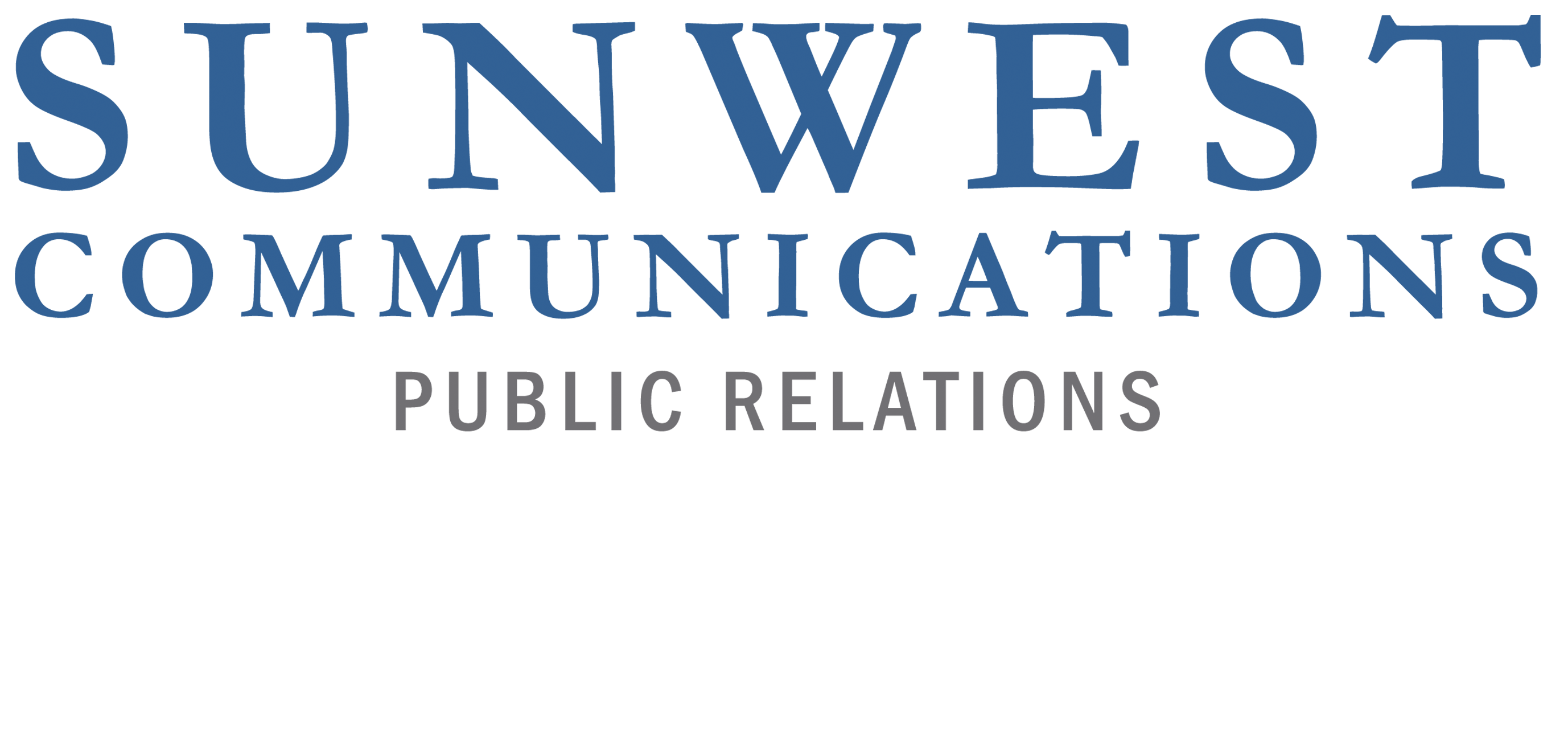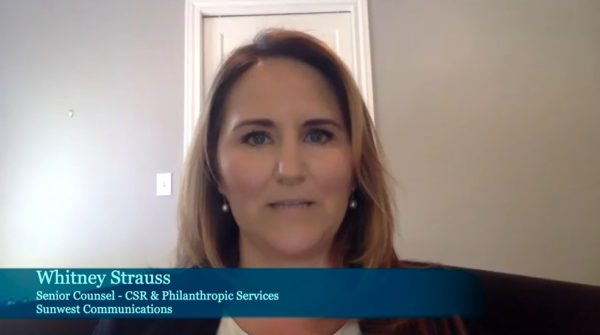Essential Healthcare Continuity During COVID-19
April 30, 2020
Thank you for joining me today. My name is Whitney Strauss. I’m the Senior Counsel of CSR and Philanthropic Services with Sunwest Communications. Joining me today is Patti Niles who is President and CEO of the Southwest Transplant Alliance. The Southwest Transplant Alliance is a nonprofit organization that serves as the bridge between those who make the decision to donate their organs and tissues to those who need a life-saving transplant. Thank you for joining me today, Patti.
Thank you. Appreciate that great introduction. Now, I know STA is considered part of the Essential Health Care Workforce. So I was hoping you could give some perspective as to what has that been like for your organization and also the future of healthcare that was going to happen anyway, but also in response to COVID. So my first question for you is what has been the impact of COVID through the last few weeks for your staff or organ donors, your hospital partners and how have you been responding and changing to adapt? It’s been an interesting time for us as most of us in health care these days and we’ve really tried to keep in the forefront of what we do three things. One: We wanted to be socially responsible and try to mitigate our exposure and spread of the virus. We had to contain that as an organization because we’re working in hospitals. The second is we wanted to really protect our staff making them feel safe and putting them in environments where they could feel say to continue on their mission. And the last but the most important is to continue our life-saving mission because the wait list for all of those waiting for a transplant – 110,000 throughout the country 10,000 in our state – can’t wait.
It’s been our top priority to keep communicating to keep the message flowing through our staff being as transparent as possible. There was, I remember March, we were all operating then at fear base and it’s natural, we’re all human. We didn’t know what was going to happen and what I always say what we don’t know we imagine and sometimes that imagine gets away from us and we heard a lot of that fear from our staff. We developed a communication portal where all communication came from me. They needed to hear from their leader that it’s going to be okay. We’re going to give you everything you need. We’re going to protect you, we’re going to keep you safe. We’re going to continue the communication. We set up an email so they could send an email that went directly to the CEO and I would respond 24/7. So if they had a fear about something that was happening about where they were going, about personal protective equipment, anything like that they could ask in real time. We’ve responded to their fears by initially immediately March 16th, we were doing COVID testing on all of our organ donors. We were one of the first organ donor programs to do that in the country. That gave our team a sense of security knowing that the donors that we had in front of us were tested. So we knew that they were negative. It also gave our transplant centers a great sense of relief knowing that those organs also were coming from donors that were COVID-negative. That reduced our anxiety almost immediately. We’ve been able to do a lot of innovative practices. What we found because of our service area, we go from Dallas all the way out to El Paso to Texarkana. We have to take our teams out and there’s a lot of fear in the hospitals of the organ donor folks coming into their facilities. They know that we’re in a lot of hospitals, we service over 200 hospitals throughout Texas, and the hospitals know that we’re going from hospital to hospital to hospital. So how can they feel comforted knowing that we’re not bringing something into their facilities? So it’s a challenging time. There’s a lot of things to think of – our recipients our donors, those donor families and our teams, our staff teams.
Patti, as healthcare workers work to address the crisis, what have been some innovative partnerships or efforts emerging that you have seen? I have loved to hear our communities really applaud their health care workers. You know, I live in a high-rise and I got the opportunity the night that we were all out on our balconies applauding the healthcare workers, those who are helping us. I’m so proud of our community and how we come together to help those and really cheer on those who are really at the front line for us. I’m excited about some innovation at STA because you heard me talk about the fear within the hospitals and our transplant surgeons and transplant programs and our teams. One of the innovations that we came up with to reduce all of those fears is to move our organ donors. We found a hospital – First Baptist Medical Center. They’re an incredible facility that does elective surgery, and because elective surgery is not being done currently, they were an operating hospital without any patients. So we teamed up with them to move our organ donors to that facility. They have intensive care units. They have labs. They have all the things that we need to make this happen. So we started doing that the first of this month. It’s gone really well, that hospital has been so supportive. It has reduced that anxiety for our team of having to go out all over the state. Our transplant surgeons can come from Baylor and UT Southwestern and Parkland and Medical City Dallas to do the recovery there and then they take the organs back to their own facilities and do the transplant. So that has been a phenomenal innovation that is really not happening anywhere. We are in the process of building our own facility, which is not too far from this particular hospital and that will enable us to carry that innovation on. But this was an immediate step that we could do to reduce all the anxiety in our communities and we did that within seven days. We made that happen within seven days. That was a quick turnaround. We listened, we heard and we acted upon all that we heard.
Also Patti, with COVID and with any pandemic, how do you think this may or may not change healthcare and specifically STA in the future and what opportunities do you think this could create? I really think they’re going to see significant change. I was a bedside nurse during the HIV fear and when that came out, you know, and this was in the 80s and this was a time where we didn’t wear, as bedside nurses, we didn’t wear gloves. It wasn’t accepted practice to wear gloves. It was considered insulting to your patients to wear gloves. So that changed our protective equipment, that changed how we did that then. I think what’s going to happen out of this COVID is that we will continue all those universal precautions that we do but I think it’ll take it to a different level. Even at STA, we have our own laboratory service that does infectious disease, so we’re able to test for HIV or hepatitis, but there’s a platform that we’re probably going to purchase for all viruses moving forward. We were not set up for that. You see, a lot of places were not set up for that. I mean, the testing capability has been a challenge for all of us throughout the country. We haven’t had the test kits, we haven’t had all the supplies needed to do the testing. So we’re going to be prepared internally so that we can do any kind of testing. It had made us rethink our new facility, our new office that that should be up and running in a few months, how we even station employees. You know, we always want to be mindful of a virus. Even if it’s just the flu. We should be mindful of that transmission and be prepared for that. I think it will change how we really consider all of that. I mean, I don’t know if I’m going to be willing to go to the grocery store and handle a grocery cart anymore without something in between me and the grocery cart. It has really made us think about things like that. As in healthcare, I think we have to be concerned about other pandemics and be mindful of our equipment, of our supplies. Do we have enough? Are we prepared? If not, how do we navigate quickly? Being able to put our hands on those things I think has really given us a sense of, “Oh my gosh, we weren’t ready.” Right? None of us were ready for that. So I think it will change inventory supplies and really how we think and manage how people work and how we test. Excellent. Thank you so much Patti. I really appreciate this time. You’ve been such a transformational leader in healthcare and for our community, and we’re fortunate to have you and thank you for your perspective today on COVID and the future of healthcare. And again, this is Whitney Strauss Senior Counsel of CSR and Philanthropic Services with Sunwest and have a good day.

